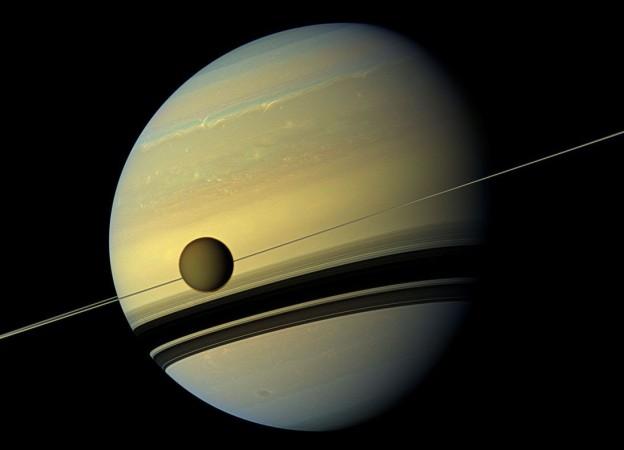As the hunt to discover alien life continues in full swing, NASA, the United States space agency has discovered a weird molecule in Saturn's moon Titan. The molecule discovered in the atmosphere is cyclopropenylidene, or C3H2, and it has only ever been discovered in the cold void of space.
An indicator of life
It should be noted that the only other place where scientists have observed the presence of C3H2 is in the laboratory conditions simulated on earth. NASA has described the presence of this molecule in Titan a 'little weird', and scientists believe that it could be an indicator of life.

"We think of Titan as a real-life laboratory where we can see similar chemistry to that of ancient Earth when life was taking hold here. We'll be looking for bigger molecules than C3H2, but we need to know what's happening in the atmosphere to understand the chemical reactions that lead complex organic molecules to form and rain down to the surface," said Melissa Trainer, an astrobiologist at NASA's Goddard Space Flight Centre, Science Alert reports.
Researchers at NASA also added that the atmosphere of Titan is a hive of chemical activity. Titan is a giant space body that outsizes Mercury, and its atmosphere is mostly made of nitrogen. Scientists are now planning to learn more about the atmosphere of Titan, which will help them to determine whether the giant moon is habitable.
"We're trying to figure out if Titan is habitable. So we want to know what compounds from the atmosphere get to the surface, and then, whether that material can get through the ice crust to the ocean below because we think the ocean is where the habitable conditions are," said Rosaly Lopez, a senior scientist at NASA's Jet Propulsion Laboratory.
Is Titan habitable?
A few months back, a study report published in the journal Astronomy had suggested that giant lakes exist on Titan. According to the research report, methane used to rain in Titan, and these rains are capable of filling lakes as much as 330 feet.
Janelle Wellons, a NASA engineer had also previously suggested that humans should consider colonizing Titan if earth becomes inhabitable. Wellons believes that the thick atmosphere of Titan is capable of protecting humans from deadly space radiation.

















